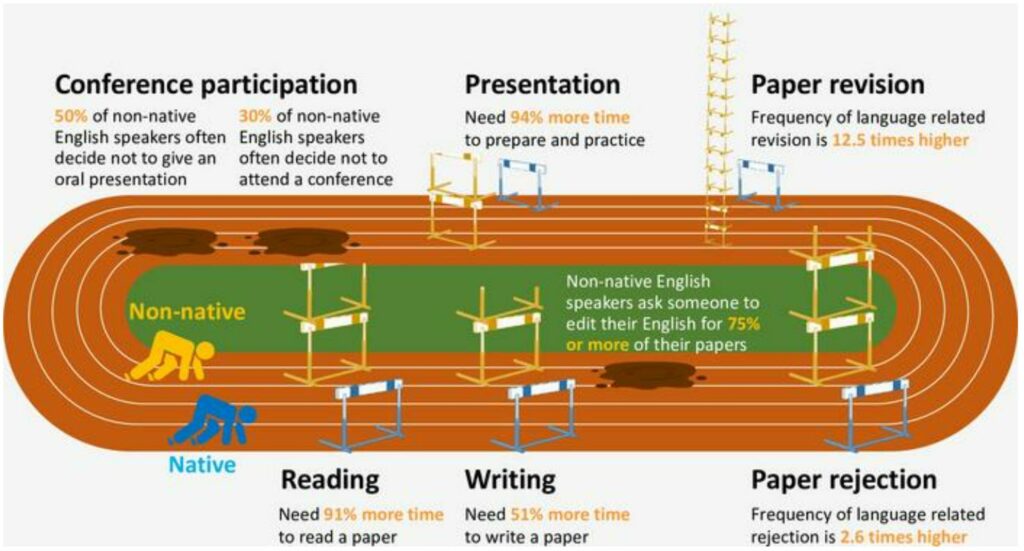The true cost of not being a native English speaker in science
English plays a convenient and widely-used role as the language of science. However, this practice presents significant challenges for individuals whose first language is not English, which includes the majority of people worldwide.
Recently published research in the open access journal PLOS Biology, led by Dr. Tatsuya Amano at the University of Queensland, Australia, sheds light on the insurmountable barriers faced by non-native English speakers in the scientific community.
Previous studies have failed to quantify the extensive costs associated with being a non-native English speaker in the scientific field. Dr. Amano and his team conducted a survey involving 908 environmental scientists from eight countries with diverse linguistic and economic backgrounds. The survey aimed to compare the efforts required by individual researchers to carry out various scientific activities in English.
The results of the survey revealed significant and unmistakable disadvantages for non-native English speakers. In comparison to native English speakers, non-native English speakers require up to twice as much time to read, write papers, and prepare presentations in English. Papers authored by non-native English speakers are 2.5 times more likely to face rejection and 12.5 times more likely to receive revision requests solely due to language-related issues. Additionally, many non-native English speakers avoid attending and presenting at international conferences due to a lack of confidence in communicating in English.
These findings have critical implications for the global pursuit of an inclusive academia that fosters success for all individuals. The researchers discovered that these disadvantages disproportionately affect individuals in the early stages of their careers and those from lower-income countries. The authors argue that without dismantling these barriers, fair participation for non-native English speakers in the scientific community cannot be achieved, and contributions from individuals whose first language is not English will be limited.

“I was shocked to see the results,” remarks Dr. Amano. “As a non-native English speaker myself, I have experienced those struggles first hand, and knew they were common issues among us non-native English speakers, but I didn’t realise just how high each individual hurdle was when compared to native English speakers.”
The researchers highlight that numerous individuals may have abandoned their scientific careers due to language barriers.
The underlying issue at hand, as stressed by Amano, is the lack of collective action by the scientific community to address this problem. Instead, the burden has largely fallen on individuals to tackle language barriers themselves.
The paper puts forth potential solutions, including supervisors acknowledging the difficulties faced by their students, journals offering free English editing services, and funding bodies providing financial support for initiatives focused on overcoming language barriers.
“To date, being fluent in English has been a ticket to enter the world of academia,” adds Amano. “We must abandon this old system. Anyone in any part of the world should be able to participate in science and contribute to accumulating humanity’s knowledge.”
Image Credit: Getty
